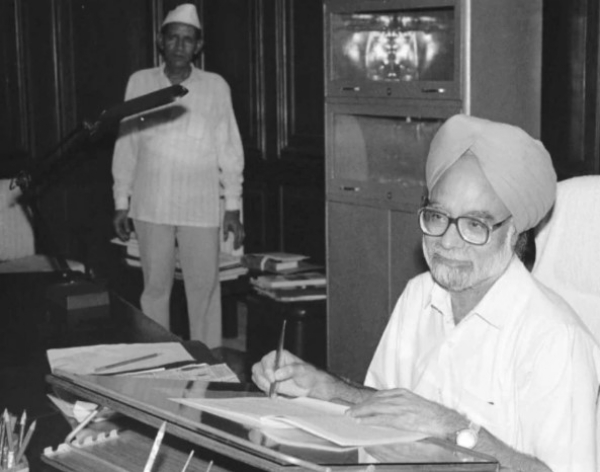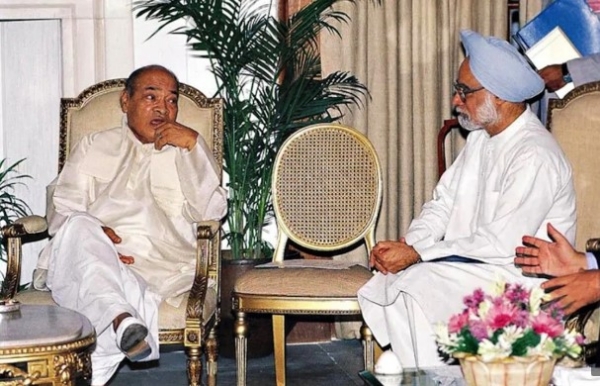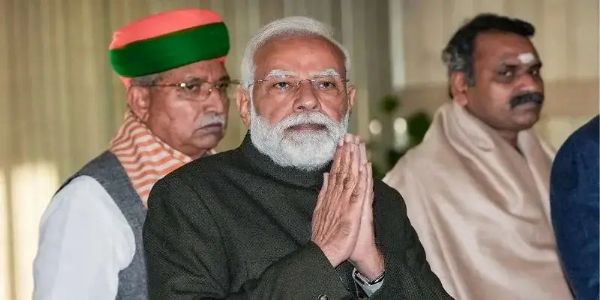

New Delhi, 26 December (HS): Whenever the beginning of liberalization and the end of the license raj will be discussed in India, it will start with the name of Dr. Manmohan Singh. Before becoming the Prime Minister and the Finance Minister of the country, Dr. Manmohan Singh had also been Economic Advisor in the Department of Foreign Trade, Chief Economic Advisor of the Finance Ministry, Secretary of the Finance Ministry, Director of the Reserve Bank of India and Governor of the Reserve Bank of India. Dr. Manmohan Singh, who turned from an economist to a politician, is considered the father of economic reforms and liberalization in India. Dr. Manmohan Singh, who handled the Finance Ministry in the PV Narasimha Rao government, gave a new direction to the country's economy, due to which the country's economy, which was in a bad shape, could get back on track.
Due to the license raj and closed door economy that had been going on since independence, the country's treasury was almost empty in the early 90s. The condition of foreign exchange reserves had become so bad that India was getting trapped in the debt trap. India was forced to take new loans even to pay the installments of foreign loans. Only 06 billion dollars were left in the foreign exchange reserves, which could not be used for imports even for a month. Due to the Gulf War, the amount sent by Indian citizens working in the Middle East also decreased. In such difficult circumstances, Dr. Manmohan Singh tried to give a new direction to the country's economy. In this work, he got full support from the then Prime Minister PV Narasimha Rao.
What Dr. Manmohan Singh did as Finance Minister after getting the support of the Prime Minister, not only strengthened the country's economy, but also gave it a new direction. He took immediate measures to increase the foreign exchange reserves and mortgaged a part of India's gold reserves. Similarly, the rupee was devalued by 20 percent in two phases. This made it possible to make Indian exports competitive, which increased the inflow of foreign currency.
The biggest work he did as Finance Minister was the liberalization of industrial policy and changes in the country's trade policy. To reduce import dependence and promote exports, Manmohan Singh worked to reduce the complexities of license raj. Along with this, he decided to make policy changes to reduce the monopoly of government companies in the industrial sector. Under this, the limit of foreign investment was increased to 51 percent. Similarly, Dr. Manmohan Singh also tried to reduce the fiscal deficit through tax reforms and reduction in subsidies.
Taking forward his efforts of economic liberalization, Dr. Manmohan Singh included many such provisions in the general budget of 1991, which gave a new direction to the country's economy. In this budget, TDS (Tax Deduction at Source) was introduced and corporate tax was increased. Similarly, in this budget of Manmohan Singh, the private sector was allowed to participate in mutual funds.
When Dr. Manmohan Singh took these steps for economic reform in 1991, many questions were raised about it, but due to these policies of Manmohan Singh, the country started on the path of liberalization, which opened the doors of economic progress and due to the policies made by him, India got the opportunity to make its place in the global market.
Manmohan Singh's tenure as Prime Minister is also criticized on many issues, but the fact cannot be denied that it was during his tenure that India's GDP growth reached a height of 9 percent. With India's growth rate reaching 9 percent in the year 2007, the Indian economy became the second fastest growing economy in the world.
During Dr. Manmohan Singh's tenure, many steps were also taken towards tax reform. Among these, Value Added Tax (VAT) can be specially mentioned, through which the old complex tax system was abolished. Apart from VAT, service tax system was also introduced during Manmohan Singh's tenure, which strengthened the country's treasury. Apart from this, Special Economic Zone was started in the country in 2006 on the instructions of Manmohan Singh. National Rural Employment Guarantee Scheme (NREGA), which is now called MNREGA, can also be named among Manmohan Singh's achievements. It is said that due to this scheme, despite the names of the ministers of the then UPA government being involved in many scams, Congress was successful in winning the Lok Sabha elections for the second consecutive time.
Hindusthan Samachar / Indrani Sarkar







